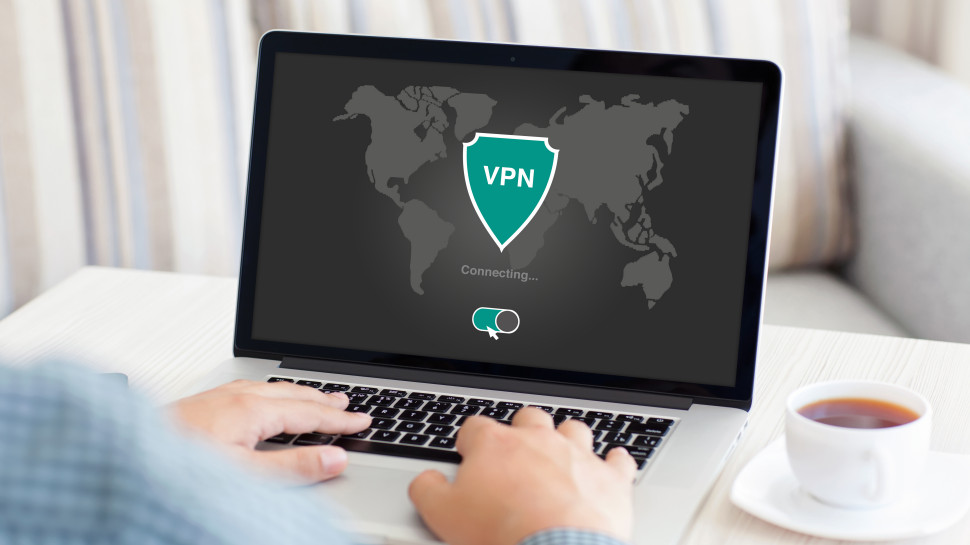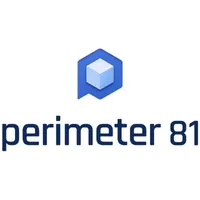Remote VPN vs cloud VPN: What's the difference?
Secure your corporate online activity with cloud or remote VPN

Remote VPN or cloud VPN – which is the best VPN service for your business? Some companies offer one or the other, while others – such as Perimeter 81 – our pick for best business VPN, offer both. Virtual private networks (VPNs) encrypt information transfers online, safeguarding customer data and sensitive messages.
Remote VPN (also known as remote-access VPN) enables you to securely connect individual devices to a private corporate network. A typical example of this is when employees access an office network from their home computer. Cloud VPN (also called Site-to-Site VPN) enables two private corporate networks, such as those of a branch office and the main head office, to communicate securely.
Perimeter 81 is the best business VPN
Save 250+ yearly hours on manual configuration. Deploy your entire organization within a single day. Learn why Perimeter 81 is TechRadar's choice for the best Business VPN. Ditch legacy hardware and make the move to the cloud. See how simple it is for yourself.
Remote VPN vs cloud VPN: Features
With remote VPN, you need to install VPN software to your corporate server. Subsequently, individual users can download an app on their personal computers or smartphones, and use it to securely access your corporate network. The VPN encrypts emails sent through the network, as well as documents, and even user requests to scan or print those documents.
In practice, this means that remote VPN:
- Allows an unlimited number of individual devices such as laptops, mobile phones, scanners, and printers to connect securely
- Encrypts all requests sent and received by these devices, masking your network traffic from malicious actors
- Is temporary: employees can disconnect their devices from the VPN when they’re not working, and reconnect when they return
Alternatively, Cloud VPN can be used to connect two corporate networks. You may have multiple office locations, with employees that actively engage with customer data that’s logged daily into a CRM. Unlike individuals, these networks are in constant communication. For example, if one office logs a customer into the CRM, that data must be immediately shared with all other offices, and encrypted. The sheer volume of data alone demands permanent infrastructure.
Instead of installing a VPN client on your server, you can connect your offices to a VPN gateway hosted virtually by a cloud VPN provider. The gateway encrypts and decrypts traffic as required, and acts as a permanent third-party bridge between your networks.
This means that cloud VPN:
Sign up to the TechRadar Pro newsletter to get all the top news, opinion, features and guidance your business needs to succeed!
- Doesn’t require you to install a VPN on your corporate servers
- Allows two or more large corporate networks to communicate securely
- Encrypts all traffic between any number of networks
- Is more permanent: the cloud provider has permanent infrastructure in place, and you pay to use it
Remote VPN vs cloud VPN: Performance
Remote VPN encrypts data locally, and relies on the local computing power of employees’ devices. With cloud VPN, a dedicated third-party gateway handles encryption for all traffic. This makes cloud VPN faster and more efficient than remote VPN. However, creating a permanent VPN connection for each employee’s home network is expensive and impractical.
If all this talk of networks and data packets is confusing, consider this analogy: If remote VPN is like a car, cloud VPN is like a train. The car can transport four or five people at a time, while the train can carry thousands of passengers. However, this doesn’t mean a train is better than a car in every situation. It would be impractical to build a train station in every driveway so people could travel to work. Also, the train only services several preset destinations, while cars are flexible and can take you almost anywhere.
Cloud VPN constructs a permanent encrypted communication tunnel between large networks. Remote VPN encrypts the connections of many devices accessing a single network. One isn’t necessarily better than the other. Instead, they have different use cases, and should be implemented according to your specific requirements.
Remote VPN vs cloud VPN: Support
Both remote and cloud VPNs are a complex mix of hardware and software built on top of an existing network infrastructure. Depending on the skills and equipment of your in-house IT team, and the complexity of your network, your support needs will vary from basic customer service to dedicated assistance from experienced software engineers.
Since support needs vary, VPN providers like Perimeter 81 offer different levels of support for different plan holders. Perimeter 81’s customer support ranges from chat and email support only during business hours on its Essentials tier. The Enterprise tier adds 24/7 phone, chat, and email support, plus a dedicated customer success manager.
Remote VPN vs cloud VPN: Pricing and plans
Since cloud and remote VPNs have different use cases, your company may require either or use both in tandem. See Perimeter 81’s pricing chart as an example of the kinds of pricing you might see for cloud and remote VPN services.
| Header Cell - Column 0 | Essentials | Premium | Premium Plus | Enterprise |
|---|---|---|---|---|
| Starts at | $8/user/month +$40/gateway | $12/user/month +$40/gateway | $16/user/month+$40/gateway | Pricing available on request |
| Max Number of Applications | 2 | 10 | 100 | Unlimited |
| Min Number of Users | 5 | 10 | 20 | 50 |
| Max Bandwidth per Gateway | 500mbps | 1000mbps | 1000mbps | 1000mbps |
| Remote VPN | Yes | Yes | Yes | Yes |
| Cloud VPN | Yes | Yes | Yes | Yes |
As you can see, pricing isn’t straightforward, as you can technically set up both cloud VPN and remote VPN from the lowest tier if you want to. Cloud VPN only uses gateways, and since gateways cost $40/month regardless of your bandwidth, it’s better to choose the Premium tier (or above) for cloud VPN, so you have access to larger gateways.
Remote VPN uses gateways, offers connectivity to users, and provides users with access to applications. Its cost will depend on the number of users you have and the number of applications your employees need to access.
A small business that only has to give secure access to its CRM for a couple of workers could be totally fine on the Essentials tier. A large company whose workers need access to a full office suite, secure email, and CRM may need to purchase the Enterprise tier to avoid the application cap.
Remote vs cloud VPN: Verdict
While they are similar, and are often provided by the same companies, remote and cloud VPNs have different use cases. Cloud VPN works behind the scenes, encrypting communication between networks. It’s also more efficient than remote VPN. However, it can’t be used to connect remote workers to your company network, nor can it host applications for those workers to use.
If you need to set up a secure remote work environment for your team, you should implement remote VPN. Whether you need one or the other (or both) depends on the nature of your network infrastructure and remote work needs.
Serguei holds degrees in finance and marketing from York University, and brings more than five years of professional experience at their intersection to his writing. His previous roles as a finance advisor involved breaking down and explaining complex concepts in everyday terms, a talent he now brings to his work as a freelance writer.
